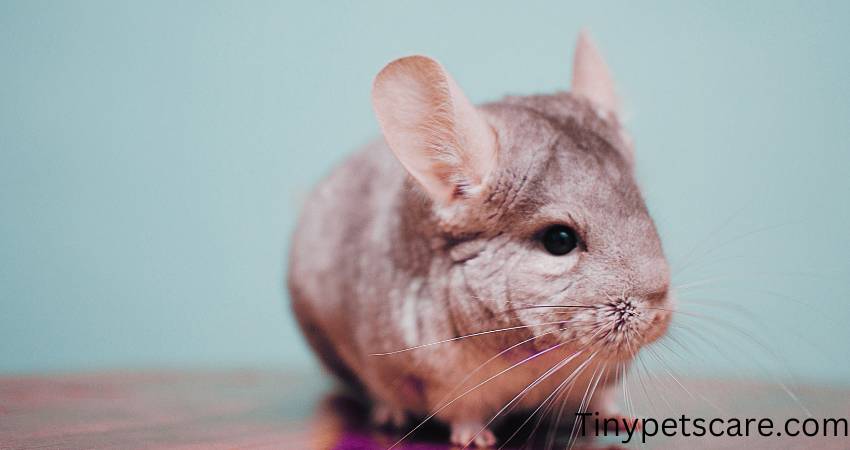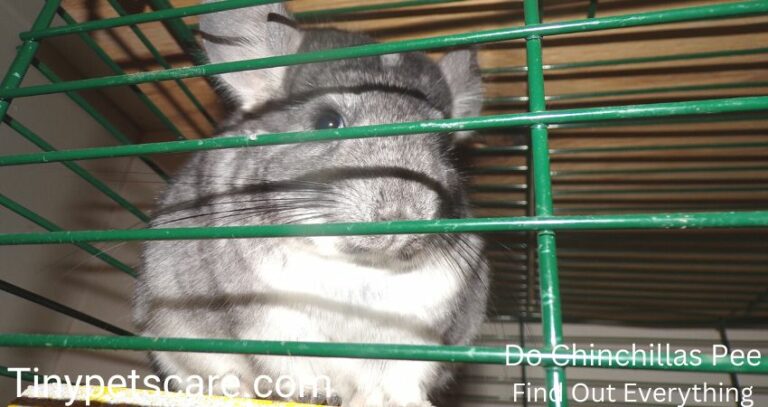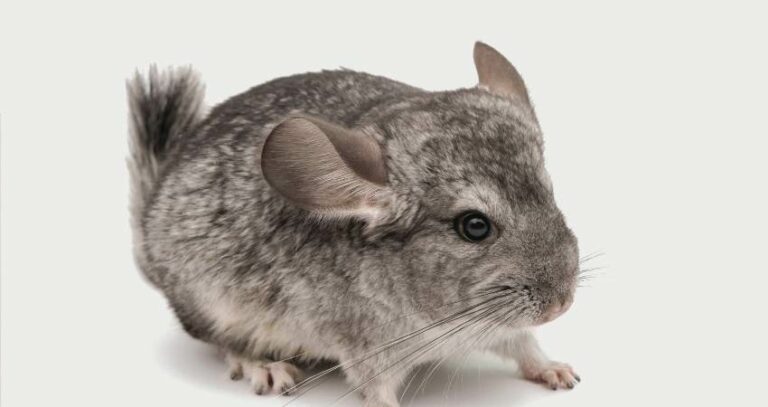Can Chinchillas Roam the House? You Should Know These!
The moment you unleash your pet chinchilla from the cage, it will start running, jumping, and climbing to express happiness. It may seem funny and cute, but it can be outright dangerous for your chinchilla and the house. But why?
Can chinchillas roam the house? Chinchillas can roam the house, but letting them free roam around the house can be dangerous. They can chew electric wires and get a shock, chew carpets or other furniture, hide somewhere, or be attacked by other pets.
You must know how to prepare the room for a chinchilla to roam so that it stays safe and can’t create any nuisance. Here is everything you need to know.
Can I let My Chinchilla Run Around The House?
You might have already asked this question in forums,? Though it is fun to let a chinchilla play around the house. But chances are, your furry pet will jump onto something and can get injured by falling off.
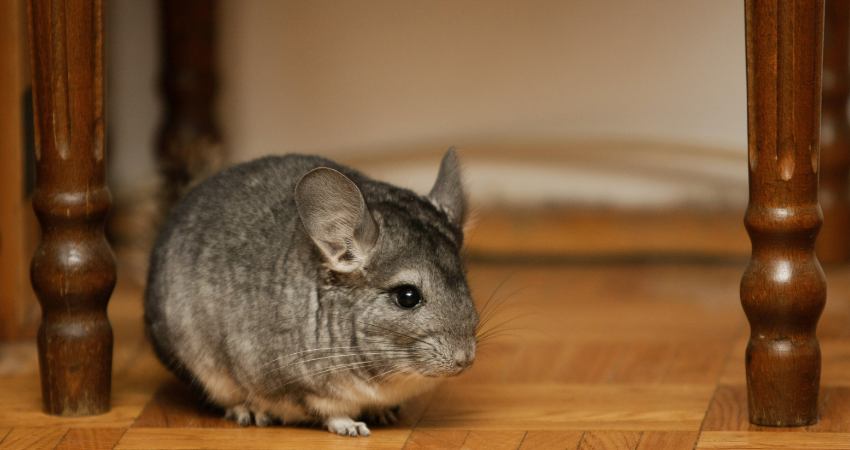
Image Source: canva.com
If that’s not the case, it might start chewing electric wires, carpets, furniture, or something else. Chinchillas are very good at hiding, so they will probably hide inside a cabinet or beneath the furniture. In such cases, it will be very difficult to put the chinchilla back into the cage again.
When you let the chinchilla roam around the house, someone might accidentally step onto the pet and injure it badly. Other pets in your home might also attack your chinchilla, which can be dangerous for the pet.
Even if everything else is all right, the chinchilla will pee and poop a lot to make your house a great mess. So, you shouldn’t allow your pet chinchillas to free roam around the house without your close supervision and chinchilla-proofing the house.
Why Should Chinchillas Not Roam the House?
You already have a brief idea of possible dangers when a chinchilla roams the house. We will now discuss them in detail to give you specific points.
They Might Chew Electric Wires
As the teeth of chinchillas continuously grow, they need something to bite all the time to trim the teeth. So, they tend to bite on everything they see fit, even their own furs. The most vulnerable object in your household to chinchilla bites can be electrical wires. You might have a lot of wires in the room for plugging and charging different devices.
The moment you let the chinchilla off, it will start jumping around the corners and start biting those wires. The minor loss will be a damaged wire. But the chinchilla can get an electric shock while biting. And this is one of the biggest reasons you should not let chinchillas roam the house.
They Might Jump on Loose Elements
A lot of loose elements might be in the room that isn’t fixed with the wall. Take a flower vase, for example. If you let the chinchilla free roam, it might jump onto the vase. The vase may break, and the chinchilla may get hurt.
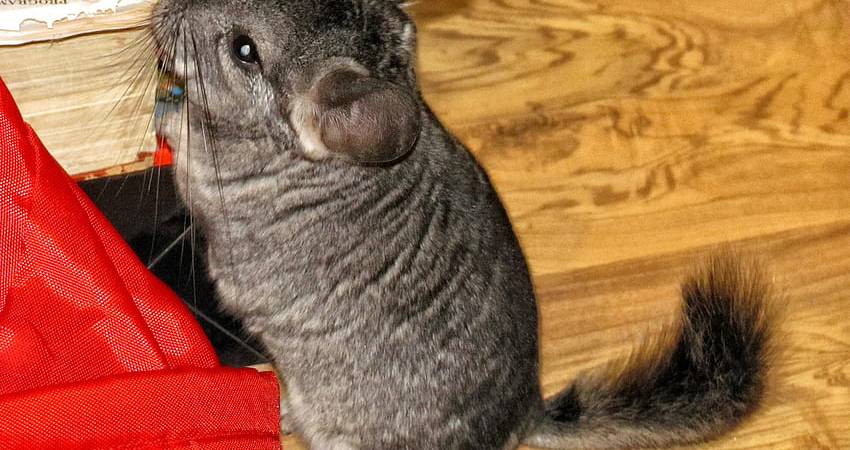
They Might Hide Somewhere
In the wilderness, hiding is a common instinct of chinchillas. They love to dig burrows and hide inside. So, if you let your pet roam freely, it will most probably hide in a spot where it is difficult to find the chinchilla. A few of their favorite places to hide can be under the mattress or couch, kitchen cabinets, etc.
It sometimes takes hours to find the chinchilla and put it back into the cage. And if there is a hole in the floor, it will be much more difficult to find the chinchilla. So, you shouldn’t allow it to hide in the first place.
They Might Feel Uncomfortable
Chinchillas are very sensitive to temperature. The most comfortable temperature for these pets is around 50-55 degrees Fahrenheit. So, they should be comfortable enough when you keep them in the cage inside a dedicated room.
But when you let them roam freely, they might go somewhere the temperature is much higher. For example, if the chinchilla goes into the kitchen, it might face overheating or heatstroke in many cases. So, be careful about their movement.
They Might Exit the Home
If any doors or windows remain open, chinchillas won’t think twice about taking the chance and getting out of the house. It can be perilous for the chinchilla as there are many predators outside. The pet may also be the victim of bad weather. So, don’t let it roam freely.
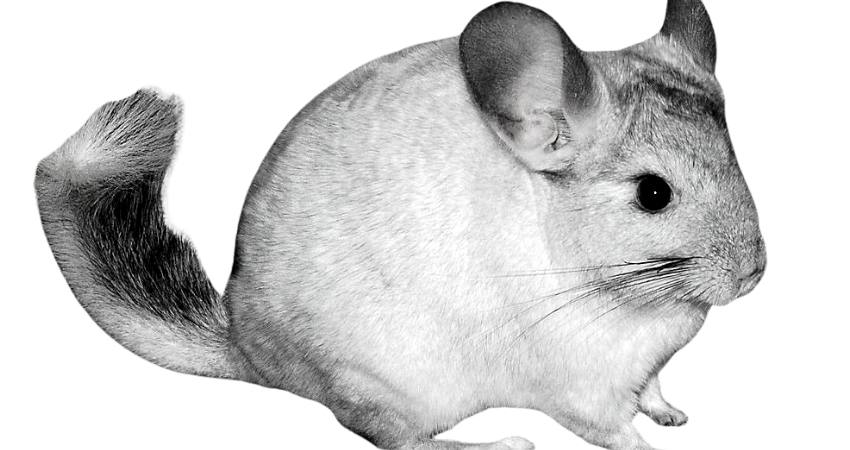
They Might Liter the House
Chinchillas tend to poop a lot. Once you let one roam freely, it will be a nightmare to clean the house over and over again. So, it is best to keep the pet inside the cage.
Can Chinchillas Free Roam in Chinchilla-Proofed Rooms?
Proofing a room for your chinchilla means eliminating all the chances for it to escape or damage something. Once you chinchilla-proof a room, the pet can be let alone for roaming. But it is best to supervise the pet and let it roam in your presence.
How to Chinchilla Proof a Room?
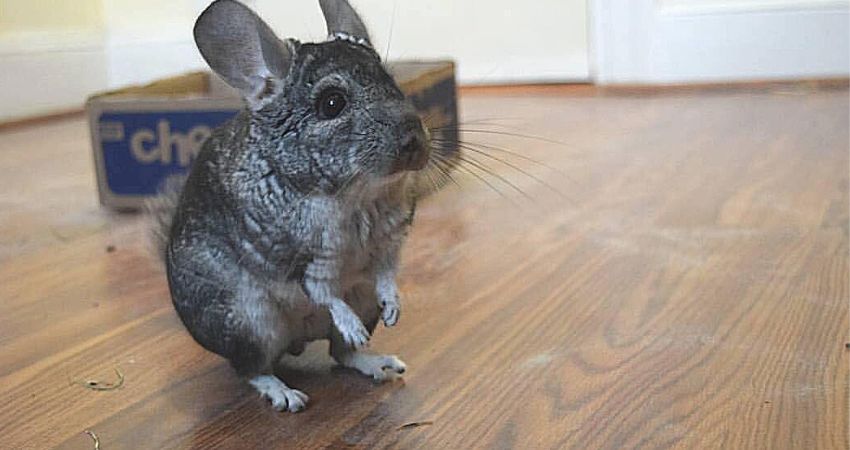
Making a room safe for chinchillas to roam requires doing the following.
- You should block any holes or gaps in the room.
- No power outlets in the room should be open. Use thick covers to hide outlets and wires.
- Remove any chewable items from the room.
- There should not be any carpet in the room.
- Don’t let other pets enter the room.
- Keep hiding places as low as possible.
- Ensure a comfortable temperature in the room.
Related Questions
Here are answers to some of your commonly asked questions. Check them out.
Do chinchillas need to free roam?
As chinchillas love to play outside the cage, it is crucial to allow them some playtime. But make sure the free roam doesn’t bring any danger to the chinchilla.
Do chinchillas need to play with toys while roaming the house?
To discourage your chinchilla from chewing valuable items in the room, you may provide them with toys like apple wood sticks or dried grape vines. This is important for chinchillas to keep their teeth trimmed and make them happy.
How much time do chinchillas need outside the cage?
It may vary depending on the age and behavior of the chinchilla. In most cases, an adult chinchilla will require 30-120 minutes of playtime outside the cage.
Can a chinchilla free roam outside the cage all the time?
It can be too risky to keep the chinchilla out of the cage for a long time without supervision. After it is done playing, you should put it inside the cage.
Wrapping Up
Letting a chinchilla play freely is fun until the chinchilla starts damaging items or gets endangered. Chewing electrical wires and carpets, jumping on loose items, etc., are very common for chinchillas. They can also hide somewhere or get out of the house. So You should not let them roam the house freely. But make sure they have some play time when they can roam in a chinchilla-proofed room under your supervision. This will keep chinchillas active and happy and prevent them from messing around your house.
